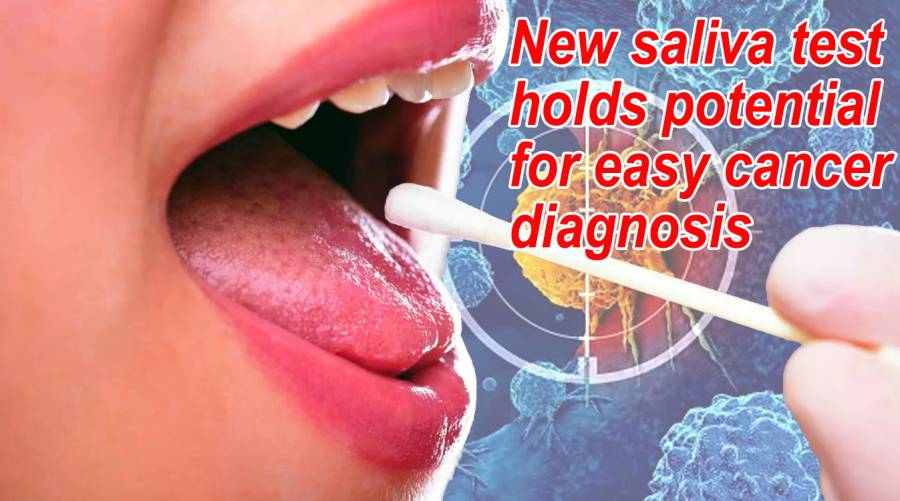New saliva test holds potential for easy cancer diagnosis

As the global cancer case count is anticipated to surge to 28.4 million by 2040, the significance of early detection in improving patient outcomes cannot be overstated. Recent research from scientists at the University of Gothenburg in Sweden announces a breakthrough in cancer diagnostics, focusing on structural changes in sugar molecules within cancer cells.
In 2020, the world saw around 19.3 million new cancer cases, a number expected to rise substantially in the coming decades. While a definitive cure for cancer remains elusive, early detection plays a pivotal role in treatment efficacy and patient survival rates. Scientists globally are exploring innovative avenues to expedite cancer identification.
The university research team has investigated structural changes in sugar molecules, known as glycans, within cancer cells. These intricate sugar molecules intricately linked to proteins and fats in the human body exhibit mutations when affected by tumors. Moreover, inflammation and other systemic conditions accompanying cancer can also influence the production of specific glycan structures.
Lead author Dr Daniel Bojar, an associate senior lecturer in bioinformatics at the University of Gothenburg, explains, "Mutations in the tumor may change the proteins that build up these sugar chains, leading to altered glycans." He says that inflammation and various other systemic conditions that may accompany a tumor also have a known impact on which glycan structures are being produced.
Dr Bojar adds, "We were convinced that we could gain more insights from these molecules with newly developed methods." He further states that as the most information-rich type of molecule in our bodies, it is a natural proposition for a data scientist to use this information for predictions.
A key advantage of studying glycans for cancer detection is their presence on proteins and particles secreted by tumors, making them accessible in bodily fluids such as saliva or blood. This feature enables remote monitoring of tumors without the need for invasive biopsies.
In their groundbreaking study, Dr Bojar and his team analyzed data from around 220 individuals diagnosed with various cancers, ensuring high-quality glycan data for reliability. Utilizing advanced AI technology, they developed a novel approach to studying glycan substructures, discerning distinct differences associated with different cancer types.
Dr Bojar underscores the complexity of glycans and the necessity for advanced analytical techniques like AI, stating, "Glycans are structurally very complex, much more so than proteins or DNA, and are best understood with advanced analytical methods such as AI."
Trending
Popular
Revolutionary HIV drug can drastically cut treatment costs
-
AI model to improve EEG reading for ICU ...
04:00 PM, 5 Jun, 2024 -
Study links weight-neutral eating ...
04:00 PM, 11 May, 2024 -
Researchers strive to expand telehealth ...
04:00 PM, 11 May, 2024 -
UCFS clinical trial to test efficacy of ...
03:11 PM, 23 Apr, 2024




